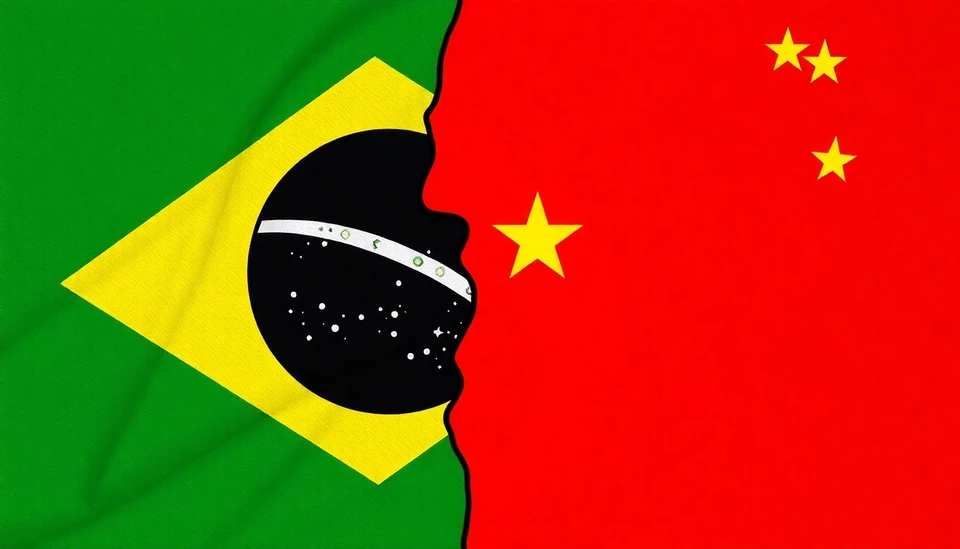
In a transformative move, Brazil is deepening its economic ties with China, aiming to foster growth and development amidst shifting global trade dynamics. This robust partnership is emerging as a crucial strategy for Brazil as it navigates the potential challenges posed by United States tariffs under the Trump administration's policies, which could impact Brazilian exports significantly.
The Brazilian government, led by President Luiz Inácio Lula da Silva, has identified China as a vital ally in its quest for economic expansion. China, already Brazil’s largest trading partner, has become even more essential as the South American nation seeks to diversify its markets and bolster its export-driven economy. This strategic pivot is particularly pivotal given the uncertainty surrounding U.S. trade policies, which have created friction in international relations and have the potential to disrupt Brazil's access to one of its most significant consumer markets.
Under Lula's leadership, Brazil is actively pursuing deeper bilateral relations with Beijing. In recent discussions, Brazilian officials have outlined plans to enhance cooperation across various sectors, including agriculture, infrastructure, and energy. China has shown keen interest in investing in Brazil's agricultural sector, which is a cornerstone of the Brazilian economy. This move not only boosts Brazil’s export capabilities but also aligns with China’s increasing demand for food resources to support its vast population.
The partnership extends beyond mere trade; it involves substantial Chinese investments in Brazilian infrastructure projects. Such investments are seen as essential to facilitating the movement of goods within Brazil and enhancing its overall economic competitiveness. Lula’s administration is optimistic that this influx of Chinese capital will stimulate growth and create jobs domestically, while also ensuring that Brazil remains a key player in the global commodities market.
However, this warming relationship with China also poses risks. Critics argue that Brazil might become excessively dependent on China, potentially compromising its autonomy in foreign policy decisions. Furthermore, there are concerns regarding environmental regulations and social impacts resulting from Chinese investments, particularly in agribusiness and mining sectors. Balancing the economic benefits while safeguarding national interests is a tightrope that Brazil must walk carefully.
As Brazil strengthens its ties with China, it also faces the backdrop of the U.S. tariffs that could threaten Brazilian exports, particularly in the agricultural sector. Tariffs have already wreaked havoc on various industries, creating uncertainty in the market and potentially stifling growth. In this context, Brazil’s pivot towards China can be viewed as a proactive measure to mitigate the risks associated with U.S. policies and to secure more stable trade relations.
The growing partnership has also been showcased through recent visits and trade agreements, highlighting a mutual commitment to enhancing economic collaborations. This emerging economic alliance not only reflects Brazil’s strategic foresight but also the shifts in global trade dynamics where emerging markets are seeking to redefine their roles amid traditional power balances. As Brazil leans into this relationship, the international community watches closely to see how it will affect regional dynamics and the broader implications for global trade.
In conclusion, Brazil’s embrace of China marks a significant shift in its economic strategy. As the nation steers through the turbulent waters of international trade relations, its partnership with China may offer a burgeoning pathway for growth and stability. The coming months will be crucial in determining how this alliance will evolve and how Brazil will manage the complexities it entails.
#Brazil #China #TradeRelations #EconomicGrowth #TrumpTariffs #GlobalEconomy #LulaDaSilva
Author: Laura Mitchell




